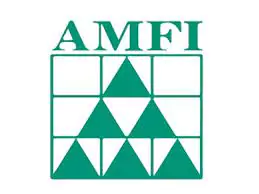
Protecting Your Future
What is Life Insurance?
Life insurance is a financial product designed to provide financial security to your loved ones in case of your untimely death. It ensures that your family members, beneficiaries, or dependents are financially supported in the event of your passing. When you buy life insurance, you are essentially paying a premium to the insurance company, which in turn provides a payout (death benefit) to the beneficiaries named in your policy when the insured person passes away.
Why Do You Need Life Insurance?
- Financial Security for Loved Ones: Life insurance helps ensure your loved ones don’t suffer financially when you're no longer around to support them.
- Income Replacement: If you’re the primary earner in your family, life insurance can replace your income, helping your family maintain their standard of living.
- Pay off Debts: Life insurance can cover any outstanding debts, such as mortgages or loans, ensuring your family isn’t burdened with financial obligations after your passing.
- Funeral Expenses: It can help cover the cost of funeral arrangements, which can be a significant financial burden.
Types of Life Insurance Policies
There are several different types of life insurance policies available. Each type has unique benefits that cater to different financial goals and situations. Let’s explore them:
Term Life Insurance
- What It Is: Term life insurance is one of the simplest and most affordable types of life insurance. It provides coverage for a set period (a term), typically between 10 and 30 years.
- Key Features:
- Provides a death benefit if the insured passes away within the term of the policy.
- Does not accumulate cash value.
- Lower premiums compared to permanent life insurance.
- After the term ends, the policy may expire, or premiums could increase significantly.
- Best For: Individuals who want affordable coverage for a specific period (e.g., until children are grown or a mortgage is paid off).
Whole Life Insurance
- What It Is: Whole life insurance provides lifelong coverage as long as premiums are paid. It also builds cash value over time.
- Key Features:
- Guarantees a death benefit payout.
- Premiums remain fixed throughout the life of the policy.
- Accumulates cash value that can be borrowed against or used to pay premiums.
- Can be more expensive than term life insurance due to the added cash value component.
- Best For: People seeking long-term coverage with the added benefit of accumulating savings that can be accessed later.
Endowment Insurance
- Description: This type of policy is a combination of life insurance and savings. It provides life coverage for a specific period, and if the policyholder survives the term, they receive a lump sum amount (sum assured + bonuses).
- Key Features:
- Provides both risk cover and investment.
- Payout at the end of the term or in case of death.
- Bonuses or profit-sharing may be included.
Unit-Linked Insurance Plan (ULIP)
- Description: A ULIP combines life insurance with investment. The premiums paid are used to provide insurance cover and also invested in equity, debt, or hybrid funds, depending on the policyholder's choice.
- Key Features:
- Offers flexibility to choose investments.
- Investment risk is borne by the policyholder.
- Premiums are split between insurance cover and investment.
Accidental Death and Dismemberment Insurance (AD&D)
- What It Is: AD&D insurance provides a payout if the insured person dies or is dismembered due to an accident.
- Key Features:
- Covers death or injury due to accidents (e.g., car accidents, workplace accidents).
- Typically provides a smaller benefit compared to other types of life insurance.
- Often offered as a rider to other life insurance policies.
- Best For: People seeking additional coverage for accidents on top of their existing life insurance policy.
Choosing the Right Life Insurance for You
When selecting the right life insurance policy, consider the following:?
- Your Budget: How much can you afford to pay in premiums each month?
- Your Family's Needs: Will your family require income replacement, debt coverage, or funds for final expenses?
- Your Age and Health: Younger, healthier individuals typically qualify for lower premiums.
- Policy Duration: Do you need coverage for a set period or lifetime coverage?
Which one is best for you?
Each of these insurance plans has a different focus: risk coverage, investment, savings, or a combination of these. Depending on your needs and financial goals, you might prefer one type over the other.
- If you're looking for affordable coverage and are only concerned about providing for your family in case of your death, term insurance is ideal.
- If you want lifetime coverage with a cash value component, whole life insurance may suit you.
- For a mix of insurance and savings, where you'd receive a payout either on survival or death, endowment plans can be considered.
- If you're interested in investment opportunities along with insurance, a ULIP might be a good option.
Conclusion
Life insurance is an essential tool for ensuring financial stability for your loved ones when you're no longer around. By understanding the different types of life insurance policies, you can make an informed decision about which one best fits your personal financial goals. Whether you're looking for affordable coverage or a policy that accumulates value over time, there's an option to meet your needs.
Would you like to go into more detail about any of these plans, or need help? Contact us today.


